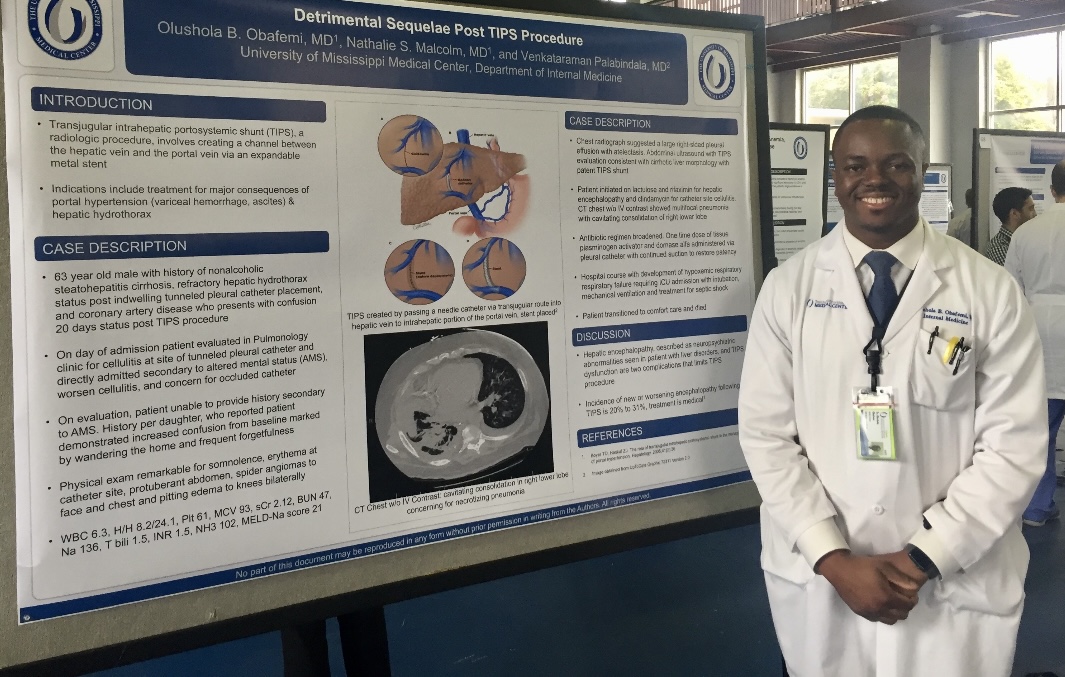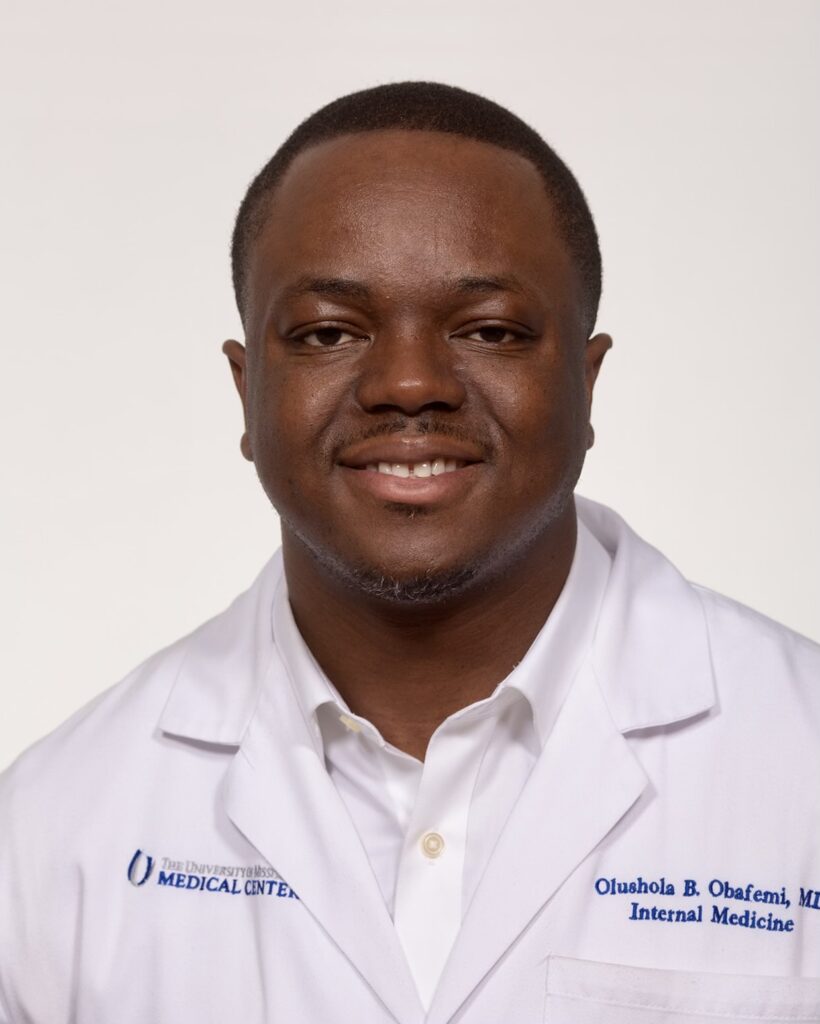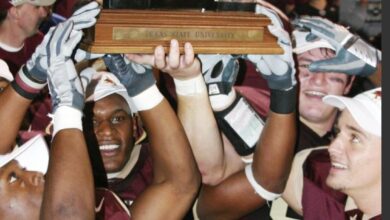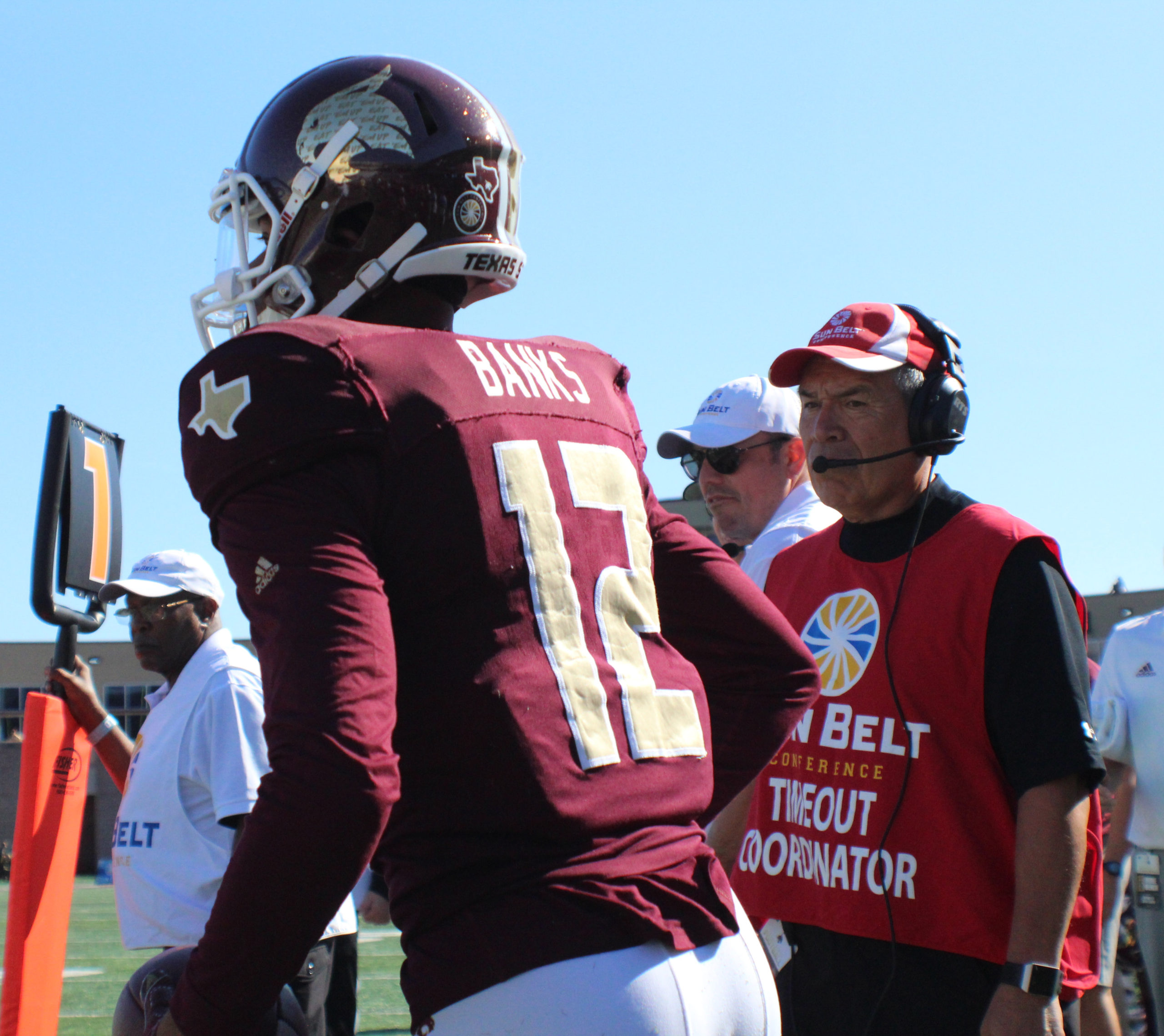From Linebacker to Lifesaver: Dr. Olushola Obafemi’s Path from Sports Star to Internal Medicine Specialist

SAN MARCOS– Dr. Olushola Obafemi, a former standout linebacker and four-year letterman, is now a board certified physician specializing in Internal Medicine.
Obafemi earned degrees in Biochemistry and Biology from Texas State University and a master’s in Healthcare Administration from Walden University. He then attended medical school at the University of Medicine and Health Sciences in the Caribbean and now works as an Internal Medicine specialist. Of Nigerian heritage, Obafemi was profoundly influenced by his family’s commitment to education, including his late brother figure, Dr. Richard Okoloise, and his brother, Dr. Mayor Okoloise.
Before graduating, Obafemi secured a summer internship at the University of Cincinnati, where he conducted biochemistry bench work on HIV enzymes. This experience was pivotal for him, clarifying his career goals.
“After that experience, I knew I didn’t want to pursue a Ph.D. and spend my life writing grants and working on one enzyme,” Obafemi said. “That’s what pushed me towards being a physician.”
After graduating in 2007, Obafemi moved to Austin, Texas, and began working for a plasma screening company. Leveraging his biology background, he thrived in this role but remained motivated to achieve more.
“I told myself I had more to accomplish,” Obafemi said. “I started studying for the MCAT and took a prep course on the UT Austin campus.”
Obafemi’s story is one of determination and resilience. Despite being rejected by the medical schools he applied to due to their competitive nature, he did not let this deter his aspirations. Instead, he pursued medical education in the Caribbean on the island of Saint Kitts and Nevis.
“I could have said, I can’t be a doctor,” Obafemi said. “However, there’s always a way to achieve your goals.”
Obafemi’s relentless mindset propelled him to excel during the two-year basic sciences program in the Caribbean. At the end of the program, he took the United States Medical Licensing Exam (USMLE) Step 1, an arduous, eight-hour test.
“Those two years, you’re preparing for that one exam,” Obafemi said. “After that, you get the green light to start the clinical sciences portions of medical school, go to different hospitals and rotate on various services.”
Upon completing the program, Obafemi transitioned to Atlanta, Georgia, where he rotated through hospitals to build his medical knowledge. After a year of rotations, he faced the USMLE Step 2, which includes two segments: a clinical skills portion and a clinical knowledge portion.
“One you simulate being a doctor in front of patients who are actors basically,” Obafemi said. “Then the other one is a basic computer exam for approximately eight hours.”
After passing both exams, Obafemi was eligible to graduate from medical school and apply for residency. At this stage, he could choose his specialty based on his year of rotations, which provided him with insight into various fields. Ultimately, Obafemi chose Internal Medicine.
“I chose Internal Medicine where you take care of the whole patient and can pursue other aspects like cardiology or gastroenterology,” Obafemi said. “I actually met my wife in medical school; she’s also a doctor.”
Obafemi and his wife both secured residencies at the University of Mississippi Medical Center. With his Internal Medicine training, he has gained broad knowledge across subjects including cardiology, endocrinology, nephrology, and gastroenterology. In addition, Obafemi gained experience in advanced heart failure and heart transplant service at Ochsner Clinic Foundation in New Orleans, where he spent one year of practice after completing his Internal Medicine training. He now practices at a high acuity, tertiary care, transfer center in Mississippi.

“I’m taking care of the sickest of the sick in Mississippi, which unfortunately is one of the sickest states in the nation,” Obafemi said. “I take care of people, aim to get them better and back home to their loved ones.”
At his practice, Obafemi works closely with emergency room doctors, handling transfers from the ER. Once emergency room patients are stabilized, they are transferred to Obafemi’s care. From there, he assesses their condition, addresses their needs, and coordinates with other specialists if necessary.
“I have a foundation of knowledge to guide my patient care,” Obafemi said. “But if I need assistance or need a procedure done, I can call upon consultants.”
At the heart of Obafemi’s work in Internal Medicine is a commitment to problem-solving.
“I’m basically solving problems all day,” Obafemi said. “We’re trying to solve this problem: Why is this person sick and how are we going to get them better?”
As a linebacker, Obafemi was the quarterback of the defense, communicating with his teammates by calling out signals. As the play unfolded, he would assess the opponent’s actions and execute a plan to stop them. In his medical career, Obafemi applies that same defensive mentality with his patients, working closely with nurses and other doctors to protect them against deadly disease.
“You have to read and react to the situation,” Obafemi said. “That’s what I’m doing as a defense for healthcare.”
Growing up in a household that prioritized education, Obafemi learned study habits that helped him excel both as a student-athlete and in his professional career. He has applied this same approach to his medical practice.
“Take that same attitude, discipline, and work ethic that you’ve learned on the football field and translate it to your new career,” Obafemi said. “You will be successful.”
Obafemi was a standout linebacker. In a game against McNeese State, he intercepted a pass at a pivotal moment in the game and ran 85 yards, culminating in a Texas State Bobcat win. Coaches David Bailiff, Creg Naivar, Darren Elliott, and Rick LaFavers played pivotal roles during Obafemi’s time at Texas State, helping to shape his skills and imparting important life lessons.
Dr. Obafemi’s journey from standout linebacker to Internal Medicine specialist highlights his dedication and adaptability. Driven by a strong educational foundation and family support, he has turned his diverse experiences into a successful medical career. His story exemplifies how perseverance and passion can lead to significant achievements both on the field and in the medical field.






One Comment